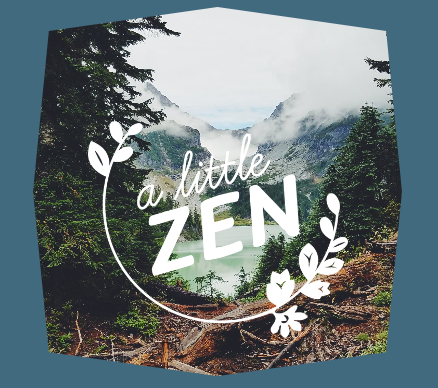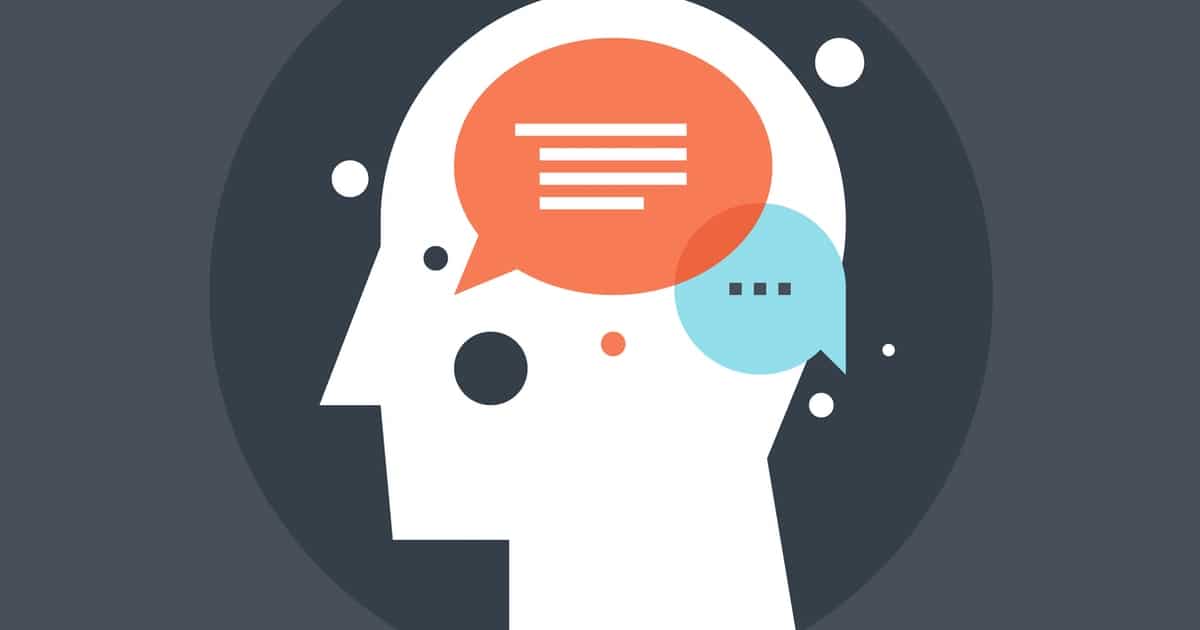The Critical Social Worker is actually a fascinating podcast. The hosts were both so energetic and engaging through the whole two hours. Though it was a little long for my taste, I found it rather intriguing. With a minor increase of the speed, I was able to mentally engage with the podcast. The diversity of topics while creating an active stream of thought was phenomenal. The stories laced throughout the bodies of information weren’t just tangents; they flowed with purpose and precision, giving them an aura of relevance. Overall, I’d give this podcast a good rating.

The Critical Social Worker hosted Zenia this week. She’s in the process of becoming a renowned expert in how trauma and stress impact the daily functions and bodies of people. She started a practice called A Little Zen where she works with people on things like yoga, breathing, and, more interestingly, forest therapy.
 Zenia brought up quite a few unique views on certain social aspects. She brought up the views of how when she was a kid, the expectation was always that kids were put outside till the night and parents would remain indoors. As an adult now, she’ll leave her kids inside while she’ll sit on the porch to relax. She’s expected to put the kids outside by society, when as a kid she was taught to go outside and there’s more of the kids’ world inside, thank’s to modern technology. Along with ideologies like this, our hosts and Zenia address the misalignment we now struggle with. A generation taught to ignore their intuition and gut feels are now adults and parenting kids the same way. Our culture is blocking out inuition and it’s causing this sense of mistrust within ourselves.
Zenia brought up quite a few unique views on certain social aspects. She brought up the views of how when she was a kid, the expectation was always that kids were put outside till the night and parents would remain indoors. As an adult now, she’ll leave her kids inside while she’ll sit on the porch to relax. She’s expected to put the kids outside by society, when as a kid she was taught to go outside and there’s more of the kids’ world inside, thank’s to modern technology. Along with ideologies like this, our hosts and Zenia address the misalignment we now struggle with. A generation taught to ignore their intuition and gut feels are now adults and parenting kids the same way. Our culture is blocking out inuition and it’s causing this sense of mistrust within ourselves.
Now, one of the topics that resonated with me most was Inner Dialogue. Inner Dialogue differs from Inner Monologue. Inner Monologue is more of a narrative, that little voice in your brain that narrates your surroundings or just responds to external stimuli without you actually vocalizing those thoughts. Its a one-way conversation. However, Inner Dialogue is described as a two-way conversation within the mind. It’s like talking to yourself as if you were another person and responding in kind. I’ve always had an Inner Dialogue, I always assumed everyone else did too, but apparently 60% of people lack an Inner Dialogue. This stat shocks me.
Overall, I learned quite a bit and enjoyed the whole experience.
10/10 for The Critical Social Worker

Mindy Haley
I agree with you regarding the length of the podcast. It is the only criticism I would offer because it is hard to carve out that much time (even at accelerated speed) all at once, and it was a conversation that wasn’t really meant for breaking into bits and pieces. That said, I agree that they managed to keep the entire episode highly engaging and I enjoyed listening to it in its entirety.
Do you have any personal reflections on a loss of intuition that you want to share?
I think about it a lot with my parenting. From the first moment I was left alone with my little daughter, I worried that I would do things wrong and mess her up in some way or another. There is a lot of chatter, especially on social media, about parenting and what is right or wrong. I’m not talking about the non-negotiable stuff, but the little things. What type of clothing or food do you provide? What are the sleeping arrangements in your house? Do you allow any screen time? Are you preparing your toddlers for college yet? It is hard to do what works for us in our house without worrying about what all the real experts, self-proclaimed experts, and non-parents think we should be doing to raise our kids. It is hard to trust my own intuition about what is okay and what is not, but I certainly do my best. Shutting out social media helps, as does reflecting on my main goals as a parent.
I think our intuition is silenced in many ways, so I just wanted to share my experience in one facet of my life.
Matti Sperry
Sorry for the delay, Mindy, but yeah. I’m an undiagnosed neurodivergent. Before I realized it, I had a lot more faith in myself. Once I realized my brain thought through things differently, I started being cautious of my thoughts. For a while there I struggled with telling the difference between what was rational and what was irrational, what was normal skepticism and what was paranoia. It sucked. But thanks to a lot of work, I’ve lowered that problem greatly and have almost gotten back to that place of trust in myself, and especially in my intuition.
Your little daughter is lucky to have a parent so concerned. I’m not a parent, barely an adult, but I’ve been exposed to so many different types of parents and personally, I think the “correct” way to parent differs for every family. Every kid is different and the fact you put so much thought into how you want to raise your baby shows you will be good at it.
I really appreciate your sharing, thank you. 🙂
Danni
I completely agree with you that we are blocking out intuition. It wasn’t until I recently started a journey on mental health and wellness that I started gaining an understanding of what things were going on in my mind and body and how they relate. I have been having some serious revelations about why I do the things I do, why I react to things a certain way. Part of a journal prompt I was working on was to ask yourself what your parents told you about feelings or how your body reacts to feelings? My parents didn’t teach me anything about that and I know I haven’t taught my children about that either. I think being educated about how our emotions effect our bodies and vice versa would really help people know and trust their intuitions. I hope to learn enough to start helping my own children learn.
Matti Sperry
Danni, you make such a good point. I wasn’t taught about emotions growing up. Having a little brother with mental health problems; I was taught how to control myself and that you can’t control other people, only how you react to others. I suspect I would be a very different person today had I been taught how emotions affect the body, or just about emotions in general. I sure would’ve benefited from it considering I’m an adult now and can barely identify my own emotions with words.
But realizing the knowledge we were never given, gives us the ability to move towards that knowledge. I guess that’s a positive of realizing that.
I apologize for the delay in response.
Devin Gittlein
I enjoyed hearing your thoughts on the podcast. In terms of the inner monologue/dialogue, I had never even considered a difference between to two so I found that interesting.
I know a lot of people who have become parents accidentally and definitely haven’t had the time to heal themselves. It is sad when you see parents pushing their trauma onto their own kids, but there are also so many people doing their best to take care of their children better than their parents took care of them and that is always heartwarming to me.
Matti Sperry
Sorry for the delayed response but that’s a good point, Devin. I’ve seen parents struggle with imprinting their trauma onto their children. But I’ve also witnessed firsthand a parent who worked so hard to deal with her trauma so her kids don’t have to deal with it. Sadly, she’s the only parent I know who took the route. It is tough to watch that struggle happen, especially as a kid when there’s not much you can do without unknowingly hurting one of the parties involved.
Ariel Oviatt
Hello Matti,
I appreciated your blog post this week. I appreciate that you gave honest, critical feedback of the blog, offering both positive and negative insight into the structure and content of the blog. I think being able to offer feedback like this is something that allows us to grow and helps us to reach others better. The one thing in your blog that stands out the most to me is the line: “Our culture is blocking out intuition and it’s causing this sense of mistrust within ourselves.” While I have observed the act of intuition being blocked out in our youth, I never thought of the correlation between the shutting down of this intuition and the mistrust that it elicits within ourselves. I thought that was a profound and fascinating concept and it is one that I will plan to apply down the road in working with others. As you work with others in the social work field, how do you think we can foster that intuition again and create more trust within the people we serve?
Matti Sperry
Hello, Ariel.
Sorry for the delay in response.
That line came from the podcast, not myself, but I see where you’re coming from. I hadn’t thought of it either till listening to the podcast; it made quite a bit of sense to me.
I’m still brand new to the formal side of psychology and social work, but from my past experiences with mental health, and my own mental state, building that trust probably should come first. Blocking the intuition leads to mistrust in oneself, so rebuilding that trust in yourself is a good start. I believe the intuition is still there, we’re just ignoring it due to a lack of trust. Rebuild the trust and the intuition should become audible.